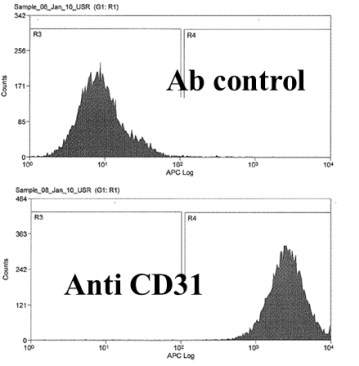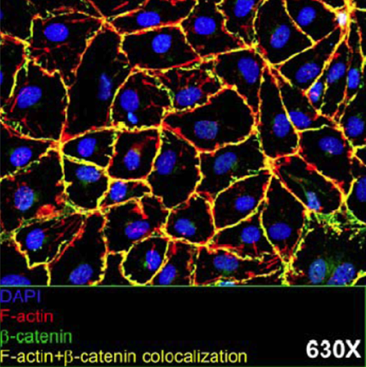Cell Biology of Pulmonary Epithelia
The Marsico Lung Institute has an extensive supply of well-characterized human airway epithelial culture preparations. Indeed, the Institute has a stock of more than 200 individual subject-derived upper (nasal) and lower airway (tracheobronchial) culture stocks from normal subjects, CF subjects, and subjects with COPD. These cultures can be grown in a variety of systems, most typically our air-liquid interface system (Fig. 1).
Recently, the Institute has extended its cell purification/preparation capacities to other cell types within the lung. Consequently, we now have available stocks of human alveolar type II cells (Fig. 2) and human pulmonary endothelial cells (Fig. 3). Upon request, we also have the capability of isolating human AT1 cells for specific studies.
 |
 |
|---|---|
 |
 |
| Figure 3. Human lung primary microvascular endothelial cells. Greater than 98% are positive for CD31 and the cells make tight monolayers suitable for permeability and transport studies. | |
The Cell Biology Core has the capacity to produce growth-extended cells. Such approaches include novel “immortalizing” genetic approaches, which produce cells with greatly extended growth capacity and good preservation of phenotypic structure and function (Fig. 4). In addition, more recent techniques, including fibroblast feeder cells and “Y compounds,” have been used to growth-extend both human airway epithelial cells and alveolar epithelial cells, and are available upon request.
 |
|---|
| Figure 4. Novel growth enhanced human primary bronchial epithelial cells. These cells (3 normal and 3 CF donors) are capable of pseudostratified mucociliary differentiation after repeated passaging and are particularly useful for testing and applying genetic manipulation strategies. |